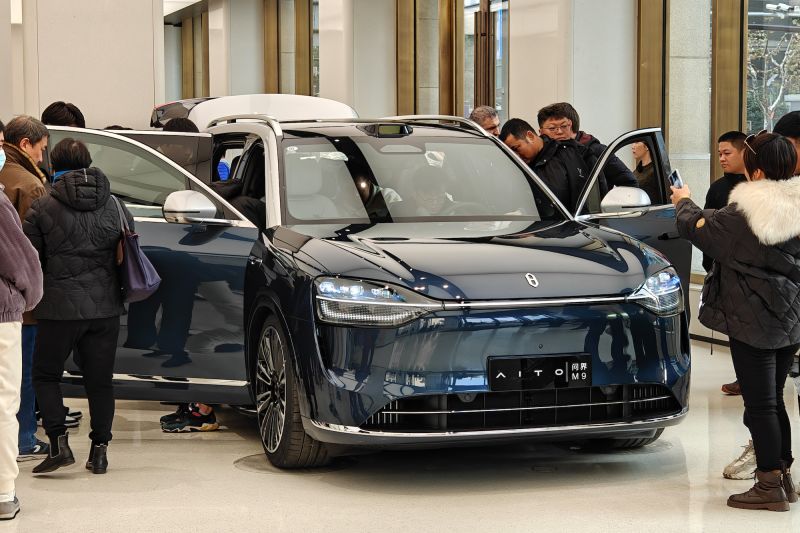
Huawei's New Smart Car Unit: A Leap into the Future of Automotive Technology

Huawei has set up a separate smart car unit, marking a significant move in the Chinese tech giant's foray into the automotive world. This article explores the implications of this development and the broader impact on the automotive industry.
Huawei's Smart Car Unit: A New Milestone
In a bold step forward, Huawei has established a dedicated smart car unit, signaling the company's strategic expansion into the automotive industry. The new entity, Shenzhen Yinwang Intelligent Technology Co Ltd, was officially incorporated in Shenzhen, the bustling southern city that serves as Huawei's headquarters. This move underscores Huawei's commitment to leveraging its technological prowess in the development and deployment of intelligent car systems and equipment.
The establishment of Shenzhen Yinwang Intelligent Technology Co Ltd represents a significant investment, with an initial capital of 1 billion yuan (approximately $140.5 million). The company's focus on the manufacturing and sales of intelligent car systems and equipment aligns with Huawei's ambitious vision for the future of mobility. Moreover, the close proximity of the new firm to Huawei's headquarters exemplifies the seamless integration of this automotive endeavor within the broader Huawei ecosystem.
Customers are buying AITO M9 models at a Huawei store in Shanghai, China, on December 27, 2023. (Photo by Costfoto/NurPhoto via Getty Images)
Huawei's Automotive Ambitions
Huawei's foray into the automotive sector is a testament to the company's resilience and adaptability in the face of evolving market dynamics. Originally renowned for its advancements in telecommunications and consumer electronics, Huawei has embarked on a strategic diversification journey, driven by its pursuit of innovation and relevance in an ever-changing global landscape.
Meng Wanzhou, chief financial officer of Huawei Technologies Co., delivers a keynote speech at the MWC Shanghai event in Shanghai, China, on Wednesday, June 28, 2023. The Shanghai event is modeled after a bigger annual industry show in Barcelona. Photographer: Qilai Shen/Bloomberg
The company's pivot towards electric vehicles (EVs) in 2021 marked a pivotal moment, with the launch of its first battery-powered vehicle, the AITO M9. This bold entry into the EV race was followed by the introduction of two new vehicles, including the Luxeed S7, a compelling electric sedan designed to rival industry stalwarts such as Tesla. Huawei's concerted efforts to carve a niche in the electric vehicle market have underscored its commitment to redefining mobility and shaping the future of automotive technology.
The Convergence of Technology and Automotive Innovation
Huawei's strategic collaborations and partnerships within the automotive ecosystem have further solidified its position as a trailblazer in the convergence of technology and automotive innovation. The company's alliance with Changan, a prominent Chinese automaker, to establish a new venture focused on smart car systems exemplifies Huawei's commitment to fostering synergies that drive technological advancement in the automotive domain.
Moreover, Huawei's development of HarmonyOS for Automotive, a sophisticated software system designed to seamlessly integrate with its mobile operating system, highlights the company's holistic approach to enhancing the in-car experience through cutting-edge technology. The integration of advanced software systems and electronics in smart cars reflects a broader industry trend, as tech firms and automakers increasingly collaborate to redefine the future of mobility.








